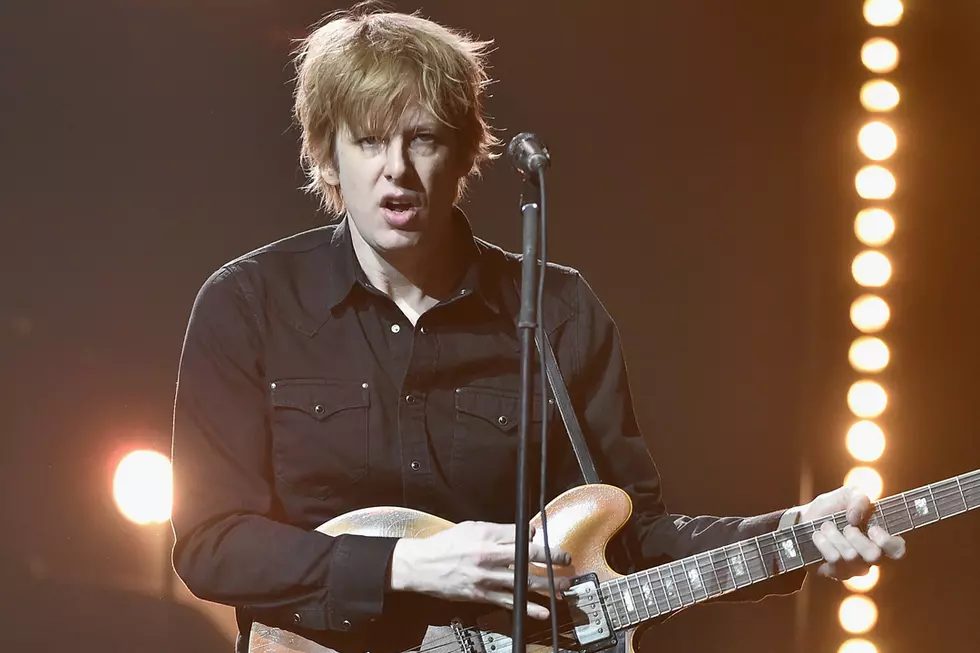
15 Years Ago: Spoon Break Through With ‘Kill the Moonlight’
Finally, in 2002, things were starting to go right for Spoon. The previous five years had been a series of disappointments, to say the least.
Signed to Matador Records in 1996, the rockers out of Austin, Texas released Telephono to dismal sales. Banking on Spoon’s talent, Elektra put out A Series of Sneaks in 1998, only to drop the band four months later. Despite these public embarrassments, Spoon continued on and shopping around a third album. Given the band’s track record, labels weren’t breaking down the doors to get a piece of the action. Eventually, Merge Records agreed to give the group a home, and put out Girls Can Tell in 2001.
“When Girls Can Tell came out it was the first record that came out that felt like it was making some traction and that people were listening to it,” singer-guitarist Britt Daniel recalled to Under the Radar in 2014. “Things didn’t feel like an unmitigated disaster, basically, so that was cool.”
The stakes were small, but Spoon had their first success – which prompted Daniel to get back to work quickly. He holed up in New London, Ct., for the summer of 2001 to write new songs and block out most other distractions. The frontman soon began completing compositions at a furious pace.
“When I came up with those demos for ‘Paper Tiger’ or ‘Small Stakes’ or ‘The Way We Get By’ – those were peak creative moments that were super fun,” Daniel said. “And those demos ended up being what the songs were on the record. We re-did some of them, but that was when all of the great ideas came together. They came together real fast.”
This creative onslaught was partially the result of a change in approach. Daniel had begun writing about more personal subjects on Girls Can Tell, but he went deeper on the tunes that would form Kill the Moonlight. “Jonathon Fisk” started with a name that appealed to Daniel’s rhythmic sensibilities, then blossomed into a raging song about his memories of being bullied as a teenager.
“He was one of those guys who was into metal in middle school, and I liked some metal but I was more into new wave,” Daniel remembered. “Somehow that represented what was the conflict between us, because I was looked at as gay. That’s the way it came across to people in Temple, Texas.”
Meanwhile, “The Way We Get By” had its roots in the singer’s more recent memories of scraping together enough cash to go to shows, alter his mind and find salvation in Iggy Pop. For the record, he claims never to have broken into mobile homes, although the song’s introductory lyric (“We get high in back seats of cars”) is based in reality.
“The first time I sang the chorus to ‘The Way We Get By,’ it was just off-the-cuff, but I knew it was good,” he told Pitchfork. “From that, I turned it into a glorified, f---ed-up-relationship song about a scrappy couple getting high in the backseat, making love with the song ‘Some Weird Sin,’ seeking out people that don’t speak very much. We believe in the sum of ourselves.”
He also believed in the sum of Spoon’s creative braintrust, which included band co-founder and drummer Jim Eno and co-producer/engineer Mike McCarthy. Where the guys had sought a classic, ’60s aesthetic for Girls Can Tell, this time they wanted to make the sounds a little stranger and less the straight-forward work of a guitar-driven band. In the process, Daniel began playing more piano on the recordings (he also wrote some songs on a keyboard for the first time), although his ivory tickling went credited to made-up band member Eggo Johanson.
“On the first couple of albums, I thought the idea of having piano was very embarrassing. It didn’t seem like something Wire would do; it didn’t seem cool,” Daniel told the Guardian. “But that was just our very limited frame of mind… We started realizing there’s nothing not cool about Marvin Gaye, there’s nothing not cool about Plastic Ono Band, and there’s piano all over those things, so why not f---ing loosen up a little bit?”
Keyboards became a defining sound for the album, from the rollicking piano that leads the charge on “The Way We Get By” to the jittery organ that reverberates through “Paper Tiger.” Between that spare song and the opener “Small Stakes,” Spoon began its long association with studio minimalism – something from which Daniel has tried to distance himself, while Eno has embraced the description.
“We tend to try to use space quite a bit,” Eno said in 2005. “A lot of bands like to put a lot of stuff, over and over, on every song. We may do that during the recording, but during the mixing we’ll try and strip it back down… Only put on the record what needs to be on there to make the song better.”
Not that this was the case with every song on Kill the Moonlight. (Although the 12 tracks share a unity in brevity; none approaches four minutes.) For every “Stay Don’t Go,” there is a more full-bodied rocker like “Someone Something” or “Jonathon Fisk.” For that last one, McCarthy made the band record it live in the studio over and over so many times that Spoon’s members began to play angrily – exactly the result the producer wanted, which is why he can be heard yelling, “I like it!” at the song’s start.
If McCarthy got the desired reaction from Spoon, the band received the same after Merge released Kill the Moonlight on Aug. 20, 2002. Critics that had been kind to the band previously began to rave about this record. Fans began to turn out in greater numbers, with Spoon selling out its run of fall shows, often in larger venues than they had played previously.
“I remember going home for Christmas and thinking, ‘Wow. This record has sold 40,000 copies.’ That just seemed insane to me, and the record had been out for four or five months at that point,” he told Under the Radar. “I remember thinking, ‘This is brand new.'”
Spoon was entering a new league. In demand as a live act, Spoon was landing on scores of best-of-the-year lists and even making their national television debut.
“We played [‘The Way We Get By’] on a couple of shows; it was the first time we got on TV,” Daniel recalled to Pitchfork. “Girls Can Tell was like the windup and then once Kill the Moonlight came out, everything sort of took off.”
Spoon Albums Ranked in Order of Awesomeness
More From Diffuser.fm









